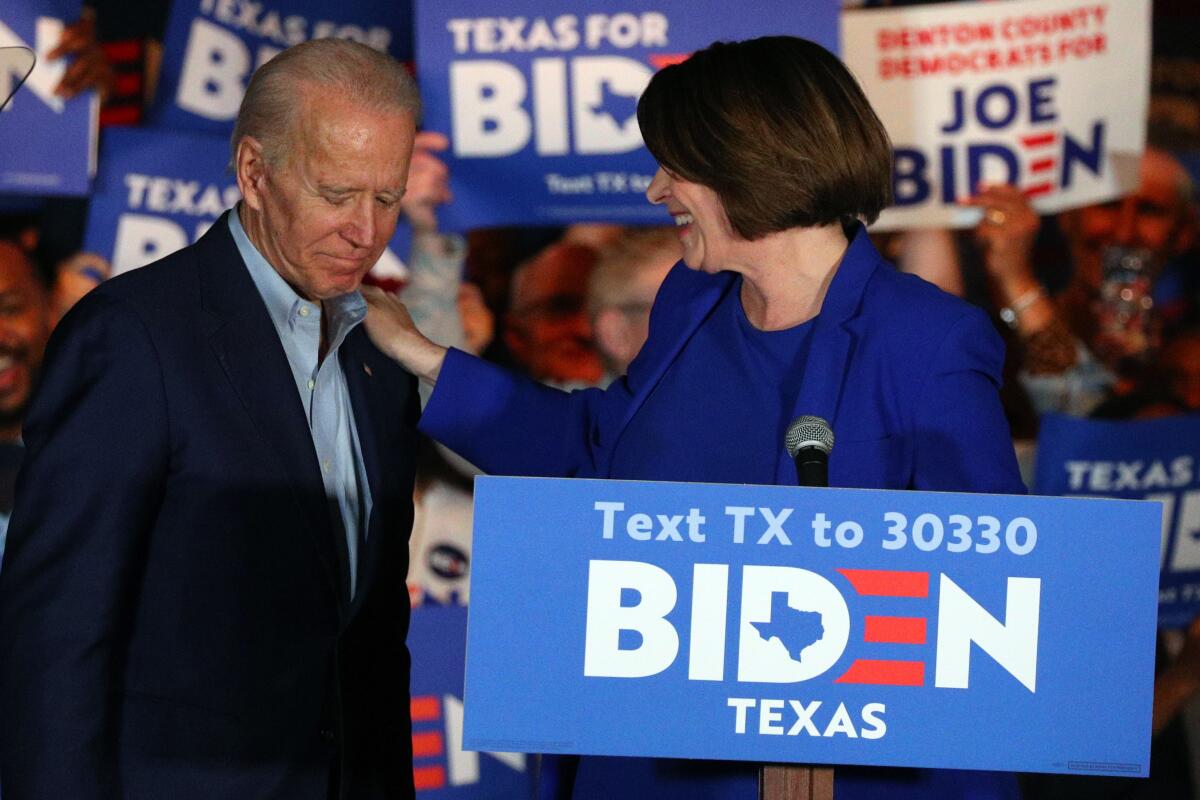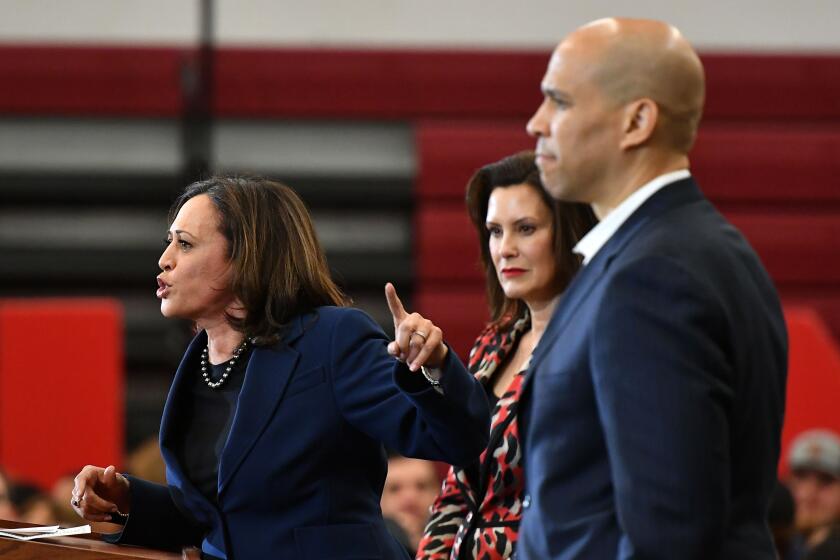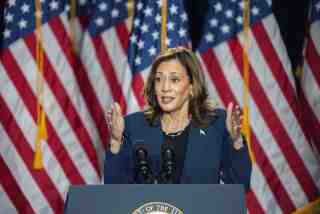Op-Ed: Biden’s choice of running mate matters, but not for the reasons you may think

- Share via
Now that Joe Biden is the Democratic Party’s presumptive presidential nominee, he must prepare for what previous nominees have called their “first presidential act” — choosing a running mate. The choice matters, but not for the reasons you might think. It will help voters envision what a Biden presidency would look like.
Biden, of course, is no stranger to this process. He was Barack Obama’s choice in 2008 and served two terms as vice president. Now it’s his turn to choose a running mate, a potential partner on the campaign trail and in the White House.
It’s a big decision, especially for a 77-year-old would-be president who voters may fear won’t be able to finish his term if elected. Clearly, the choice is on Biden’s mind — he made headlines at the most recent Democratic debate by announcing that he would pick a woman to be his vice president.
Presidential candidates typically say that their choice of a running mate comes down to one fundamental criterion: Is the person qualified to take over as president, if necessary?
In private, presidential candidates often say that they also expect the running mate to help them win. Most often, they speculate about a potential home state advantage. Or that the running mate may deliver a key demographic group, such as women or people of color. More broadly, a popular running mate could help the ticket win by attracting positive press coverage and votes in November.
But the research laid out in our latest book on presidential running mates shows vice presidential selection generally has little direct effect on voters. While most voters say that the choice of a running mate will be important in deciding their vote, few can recall a time when it actually has changed their vote.
And that makes sense. After all, presidents are far more powerful than vice presidents once in office. Why choose a suboptimal president just to elect your preferred vice president? Sure enough, our analysis of survey data from the 1968-2016 American National Election Studies shows that presidential voting mostly comes down to how people feel about the person at the top of the ticket.
What may be surprising is that running mates usually fail to deliver votes among targeted geographic or demographic groups. Our analysis indicates having a woman as a vice presidential candidate does not make women more likely to vote for the ticket. This was true when Democrat Geraldine Ferraro ran for vice president in 1984 and when Republican Sarah Palin did the same in 2008.
Nor did conservatives or evangelical Christians become more willing to vote for the Republican ticket in 2008 following the selection of Palin, who identified with both groups. Although Donald Trump won in 2016, his selection of Mike Pence as his running mate also did not cause more conservatives or evangelicals to vote for him.
Our research shows running mates matter, above all else, by shaping how voters view the presidential candidate who selects them. Running mates indirectly influence voter choice by changing perceptions of the presidential candidate — which, in turn, changes votes.
In the 2008 presidential election, for example, there was reason to question Palin’s readiness to serve as president. Biden, however, brought needed experience to the ticket headed by then-freshman Sen. Barack Obama. In both cases, voters noticed. Voters who doubted Palin’s experience were more likely to doubt McCain’s judgment — and less likely to vote for the Republican ticket. They also were more likely to believe that McCain was too old to be president.
Conversely, voters who thought Biden had the right experience to be president also viewed Obama’s judgment more favorably and were less likely to think that he was too young to be president. As a result, they were more likely to vote for the Democratic ticket.
The lesson for Biden? In choosing a running mate, he must pick a woman (given his recent pledge) who is clearly qualified to be president of the United States — and not, as McCain did, make a desperate gamble on an electoral “game-changer” who might undermine voters’ confidence in his ability to lead.
Pledging to select a female vice president was smart because it’s the right thing to do. America, supposedly the land of equal opportunity, should have elected a woman president long ago. The veep spot is just one step away.
That means avoiding choosing a running mate with limited national or executive experience in hopes of winning over key geographic or demographic groups, such as swing-state voters, women or African Americans. Think Stacey Abrams, the former state legislator who lost her bid for Georgia’s governorship in 2018.
Biden can, however, mitigate voter concerns about his biggest purported weaknesses, which include his age and Washington-insider status, by picking someone who is relatively young and yet clearly has the experience to be president, if need be. Think U.S. Sens. Kamala Harris or Amy Klobuchar.
Biden also might shore up his progressive credentials among the party base and disaffected Bernie Sanders supporters by choosing someone clearly to his ideological left, such as Sen. Elizabeth Warren.
In each case, Biden would be shaping voters’ perceptions of him as a prospective president, not persuading them to cast a vote for vice president. That’s a more realistic conception of the running mate’s influence than what typical parlor game analyses would suggest.
Ultimately, Biden’s vice presidential selection is important — electorally speaking — because of what it says about him. Will he make responsible decisions in office, not just about policy, but about the people who will surround him? As president, will he put the national interest ahead of his political interest? Will he unite and grow the Democratic Party? Does he value diversity and inclusiveness?
Biden’s first presidential act — choosing a running mate — will help voters to decide whether he deserves to be president. That’s why it matters.
Christopher J. Devine is an assistant professor of political science at the University of Dayton. Kyle C. Kopko is an associate professor of political science and associate dean at Elizabethtown College. They are coauthors of the forthcoming book “Do Running Mates Matter?”
More to Read
A cure for the common opinion
Get thought-provoking perspectives with our weekly newsletter.
You may occasionally receive promotional content from the Los Angeles Times.











